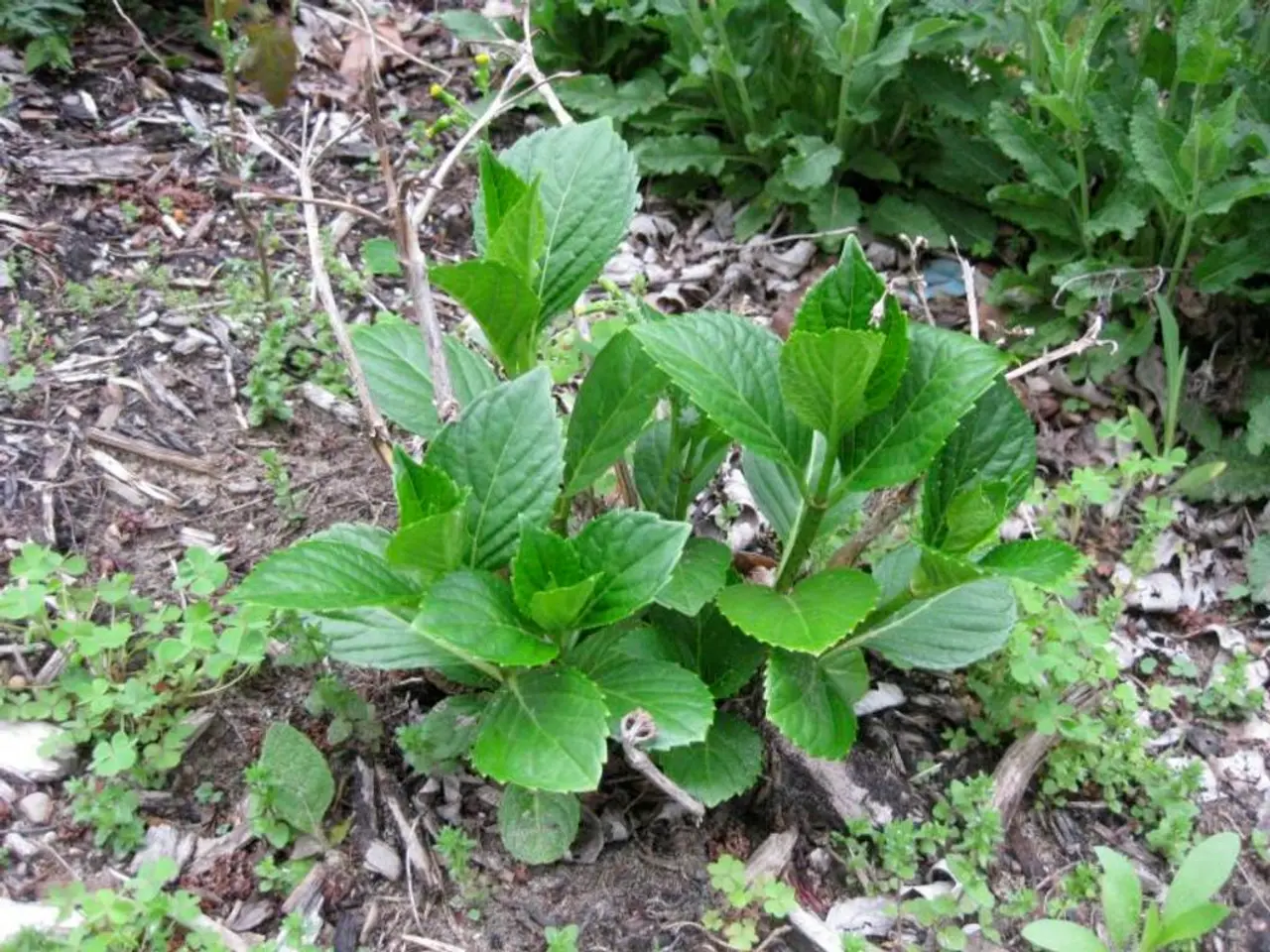Mental Health through the Use of Healing Herbs in Permaculture-Based Gardens
In recent times, as people grapple with increased stress levels and seek natural solutions, the concept of permaculture mental health gardens has gained traction. These unique spaces, a blend of creativity, healing, and nature, offer a promising future for holistic well-being.
Permaculture mental health gardens are special places where healing herbs grow, offering medicine and a space for healing and growth. One such herb, lemon balm, is noted for its calming effects and ability to aid sleep, supporting overall mental well-being.
Lemon balm is a primary example of the medicinal herbs often incorporated into permaculture gardens. These herbs are chosen for their self-seeding, sustainability, and ability to offer continuous harvests, making them practical for long-term mental health support through natural remedies.
Beyond individual herbs, the practice of therapeutic horticulture itself—using plants and gardening—has been shown to benefit mental health by promoting relaxation and engagement with nature. This is evident in practices like forest bathing, which induces stress reduction via inhalation of phytoncides (antimicrobial compounds emitted by trees).
Other commonly known calming and supportive herbs in permaculture contexts include lavender, chamomile, and passionflower. These herbs are often used for anxiety and sleep support.
Community gardens, too, are becoming vibrant social hubs where people come together to learn, connect, and support each other's wellness. Successful community gardens use strategies like regular workshops, skill-sharing sessions, open garden days, and mental health awareness events.
Organizations like Transition Towns lead the way in blending personal growth with community building. They encourage practices like companion planting, monitoring plant health regularly, and using organic pest management techniques.
The recognition of nature's healing power is growing, promising a future where gardens are places of healing and growth. Gardening is more than just growing plants; it's a way to heal and improve mental health. Using mindful techniques in gardening can reduce stress and boost our emotional well-being.
Using herbs in mental health care needs teamwork with mental health professionals. After the pandemic, with stress levels rising, people want solutions that fix the problem, not just cover it up. Permaculture mental health gardens offer a strong way to improve mental health by connecting us with nature's healing power.
Sources:
[1] Princeton researchers found that gardening boosts emotional health. [2] Common healing herbs used in permaculture for mental health support include lemon balm. [3] Recent studies have shown the power of natural remedies in mental health. [4] Gardening often requires care, including watering, pruning, and checking on plants. [5] The therapeutic effects of nature interaction can greatly improve our mental health and well-being.
- Permaculture mental health gardens, thriving with healing herbs such as lemon balm, provide continuous harvests not just for medicine, but also for mental health support.
- Lemon balm, known for its calming effects, exemplifies the medicinal herbs often found in these gardens, chosen for their self-seeding, sustainability, and ability to promote long-term mental health.
- Therapeutic horticulture, employing plants and gardening, is scientifically proven to benefit mental health by inducing relaxation and engagement with nature.
- Forest bathing, a practice that involves absorbing phytoncides from trees, is an example of this stress-reducing interaction with nature.
- Lavender, chamomile, and passionflower, commonly used in permaculture settings, aid anxiety and sleep concerns.
- Community gardens, bustling with social activities like workshops, skill-sharing sessions, open garden days, and mental health awareness events, foster connection and support for well-being.
- Organizations like Transition Towns advocate for practices like companion planting, regular plant health monitoring, and organic pest management in community gardens.
- Recognizing nature's healing power, these gardens evolve into spaces that encourage personal growth, community building, and overall mental health and well-being.
- Gardening, when approached mindfully, becomes a powerful practice for reducing stress, boosting emotional well-being, and embracing the healing power of nature; a collaboration between gardening enthusiasts and mental health professionals is crucial to harness its potential in mental health care. [Sources: 1, 2, 3, 4, 5]




